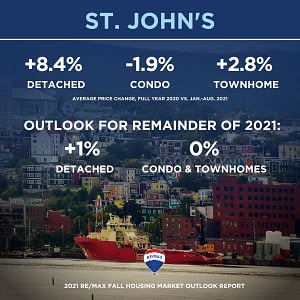Even before the COVID-19 public health crisis, the Vancouver housing market was one of the world’s most expensive. Throughout the coronavirus pandemic, it remained one of the hottest housing sectors on the planet. Now that the country is emerging from the global health crisis, one of Canada’s largest cities continues to burn red-hot, which may not be welcome news for homebuyers keen to plant roots in this dynamic but pricey British Columbia city.
In fact, according to a new report from the National Bank of Canada (NBOC), you need an annual household income of $253,000 to afford the average house worth $1.47 million, and it would take 34.3 years of savings to put together a down payment for a property with this price tag. That is, if you have a personal savings rate of at least 10 per cent.
Although price growth has been monumental over the last 20 months, the most recent data suggests some optimistic news for homebuyers: the Greater Vancouver real estate market is beginning to stabilize. Conditions are easing amid sales activity coming back down to earth, and valuations have increased moderately.
Is the housing boom over? Far from it! Of course, while the Vancouver real estate market will still maintain its housing juggernaut status, most of the enormous gains occurred several months ago. Let’s take a peek at what transpired in August 2021.
Signs of Stabilization in the Greater Vancouver Housing Market
According to the Real Estate Board of Greater Vancouver (REBGV), residential sales rose 3.4 per cent year-over-year in August, totalling 3,152 units. However, on a month-over-month basis, transactions declined 5.2 per cent. Still, when assessing the Greater Vancouver real estate market from a historical perspective, home sales in August were still 20.4 per cent above the 10-year average.
Real estate prices remained strong, with the MLS® Home Price Index (HPI) composite benchmark price for all residential properties in Vancouver up 13.2 per cent year-over-year to $1,176,600 in August. But home sales were up a tepid 0.1 per cent from July.
Here is a look at how the primary residential property segments performed:
Detached Homes
- Sales: -13.7% YoY to 945 units
- Benchmark price: $1,807,100 | +20.4% YoY | +0.3% MoM
Attached Homes
- Sales: -7.1% YoY to 620 units
- Benchmark price: $952,600 | +16.5% YoY | +0.3% MoM
Apartments / Condominiums
- Sales: +22.4% YoY to 1,631 units
- Benchmark price: $735,100 | +7.6% YoY | -0.2% MoM
Supply has been under the spotlight across the Canadian real estate market this year. In Metro Vancouver, new residential listings totalled 4,032. This is down 30.6 per cent from the same time a year ago, and down 7.9 per cent from last month. There were 9,055 active residential listings in August, down 29.7 per cent from the same time a year ago and down 8.6 per cent from July.
Overall, home inventories are at their lowest levels since the second half of 2019, while active property listings have dropped to a five-year low.
Could new inventory help further cool down the Vancouver real estate market? According to Canada Mortgage and Housing Corporation (CMHC), housing starts eased in August from the same time a year ago, totalling 1,903 compared to 2,520 in 2020. Year-to-date, housing starts have topped 19,000, up from 14,363 in the first eight months of 2020.
“August was busier than expected, and listings activity isn’t keeping up with the pace of demand. This is leaving the market under supplied.” said Keith Stewart REBGV Economist in a news release. “Housing supply is the biggest factor impacting the market right now. To help relieve pressure on prices and improve people’s home buying options, the market needs a more abundant supply of homes for sale. Housing affordability has been a key issue in the federal election. We encourage the political parties to focus on policy solutions that will help streamline the creation of more diverse housing options for hopeful home buyers today and into the future.”
What’s Next for the Vancouver Real Estate Market?
The consensus among market analysts is that the British Columbia real estate market is returning to normal – and this includes Vancouver. Despite housing stockpiles plummeting to a fresh low in August, overheated buying has been doused following a record spring season.
“Home sales around the province have essentially returned to normal after a record-setting spring,” confirms British Columbia Real Estate Association (BCREA) Chief Economist Brendon Ogmundson in a statement.
But pricing will still be a factor for the remainder of the year and potentially heading into 2022.
From Vancouver to Victoria to Vancouver Island, the unaffordability theme is prevalent. An interest rate hike, an increase in the mortgage stress test, and a recovering economy could help with sky-high pricing. However, without an injection of new supplies coming to market, more first-time homebuyers and young families could still be priced out of achieving the Canadian dream. For now, at least price growth has reached its zenith.
Sources:
The post Greater Vancouver Housing Market Shows Signs of Stabilizing appeared first on RE/MAX Canada.

